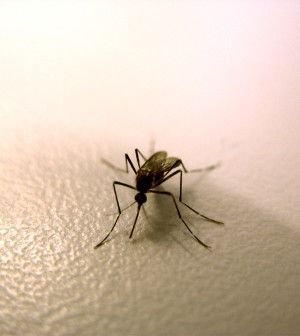- Could Your Grocery Store Meat Be Causing Recurring UTIs?
- Are You Making This Expensive Thermostat Error This Winter?
- Recognizing the Signs of Hypothyroidism
- 10 Strategies to Overcome Insomnia
- Could Artificial Sweeteners Be Aging the Brain Faster?
- Techniques for Soothing Your Nervous System
- Does the Water in Your House Smell Funny? Here’s Why
- Can a Daily Dose of Apple Cider Vinegar Actually Aid Weight Loss?
- 6 Health Beverages That Can Actually Spike Your Blood Sugar
- Treatment Options for Social Anxiety Disorder
Zika Infection May Bring Future Immunity: Study

People who’ve been infected with Zika face a low risk for another bout with the virus that can cause birth defects, a new study contends.
“The research shows that infection provides excellent protection against reinfection,” Stephen Higgs, director of the Biosecurity Research Institute at Kansas State University, said in a university news release.
“This means people infected during this current epidemic will likely not be susceptible again. When a large proportion of the population is protected — known as herd immunity — the risk of future epidemics may be low,” he explained.
Higgs and his colleagues also found that Zika virus is present in the blood at the very early stages of infection and is only briefly present in some tissues. But it remains in other tissues for a long time.
Blood and urine were clear of Zika virus within 10 days, the investigators found. But for at least three weeks after it was no longer present in blood, the virus was still detectable in saliva and semen, the findings showed.
Further research is needed to learn how Zika invades the nervous system and how long and extensively Zika virus remains in saliva and semen, Higgs said. While the virus is typically spread through the bite of the Aedes aegypti mosquito, it can also be sexually transmitted.
The team also discovered better models for improving Zika virus research and more quickly testing vaccines.
The study findings were published Oct. 13 in the journal Nature Medicine.
For most people Zika infection is relatively harmless. But for pregnant women, it can cause the birth defect microcephaly, which results in babies born with abnormally small heads and brains.
More information
The U.S. Centers for Disease Control and Prevention has more on Zika and pregnancy.
This Q&A will tell you what you need to know about Zika.
To see the CDC list of sites where Zika virus is active and may pose a threat to pregnant women, click here.
Source: HealthDay
Copyright © 2026 HealthDay. All rights reserved.










